Oh dear, Hilary Mantel...
colleenoz
3 years ago
Featured Answer
Sort by:Oldest
Comments (18)
colleenoz
3 years agoRelated Discussions
Hollyhock, Hollyhock, Oh Holly, Holly, Holly...
Comments (50)Hi, MeMo. It's so nice to hear from you. This is the first time I've visited this gallery in a few months, and what a surprise it was to see this post right on top and your recent post added to it. I'm always interested to see what hollyhocks I have each year, as they are never the same twice. If they are good, I'll throw another picture up on this thread. Meanwhile, Hollyhock, Hollyhock, Oh Holly, Holly, Holly ... TM...See MoreWord: It's a mantel, not a mantle
Comments (84)"I probably shouldn't, but I just have to point out something that I've noticed on GW more and more often." In fact, you most probably should have. My thanks to you, too. I can spell most anything correctly, big words and rare words included. ('Tho there is something odd about trying to get it right online -- words so often don't look wrong to me. Why that is, I've no idea. Case in point: it took me a couple of proofing rounds to realize there was a "greater than" sign at the end of this, rather than a period.) But I've undoubtedly spelled the thing above the fireplace "mantle" for so long that I could have spell checked and proofed 'til the cows came home. And still wouldn't have realized it was the wrong word. As for the rest of the debate here: I agree with dominoswrath. Relativism may be valid in many contexts, but spelling is not one of them. If you ask me. And righto, I realize grammatically correct/complete sentences are few & far between in my post! Chalk it up to serious lack of sleep last night. ;)...See MoreWhat would you do with this mantel?
Comments (24)What a pretty house! I see that there are some kiddos in the picture. Here's an idea that may not be your cup of tea at all, but I'll mention it in case it sounds like fun. Buy a huge blank canvas at an art supply store. Gather small rollers and large brushes; leftover house paints (not oil based) and a few small mis-mixed paints from the hardware store. Work over a tarp. Have the kids start by loosely making a few light meandering pencil lines that start on one edge and end somewhere on a different edge. Have at least one of these lines cross another. Use these to have them start blocking in areas of color. Take turns filling in areas, working loosely and trying different techniques with the brush, adding things (e.g. at the end, maybe a drizzle or splash of paint). Make sure the edges are painted as well. If you want a splash of one color, save that for last and don't over think it. If you start with a palette you like and approach it as just a fun experience it can really work. Of course you need a plan for what to do (do you have a garage?) if the outcome isn't quite what you'd hoped. A key here is not to let the kids do much mixing on the canvas itself to avoid colors getting too muddy. I've seen this done as a kindergarten classroom auction project and the results have ranged from spectacular to, um, not. Final disclaimerâ¦I realize that with a new house and the end of the holidays, this probably isn't what you had in mind. So onward to Homegoods!...See MoreMy dear brother brought me a load of gravel today ...
Comments (15)joyful, that's one good thing about the corn being picked--it's much safer to back out of the driveway now. susanjf_gw, we have great neighbors, and I'm sure they'd share if I asked for corn, or stalks for decoration, but it's field corn for their livestock, not good for 'roastneers'. schoolhouse, that's exactly right, but in reverse--today as I was passing one of the neighboring farms, I realized that it was gone. No house, no barns, no equipment--the land has been leveled and seeded. I'd noticed that someone was cleaning up the place, assumed it was the grandson of the owners, who could no longer care for the land. I'd heard that they'd moved out of state to live with their daughter. The old farmer was such a character and a fixture in the neighborhood. His other property, where he ran his cattle, joins our place, and I can't count the number of times we've chased the cattle out of our garden and yard. I'd call to let him know that they were out, and then help him chase them back through the fence. It's sad that he's gone, and so strange to realize that all traces of him and his wife are now gone from the land. Oh, the gravel pile is now gone, too--DD and SIL finished spreading it for me. :)...See Morecolleenoz
3 years agolast modified: 3 years ago
Related Stories

LIFEOh Yeah, There’s a Snake in the House
A Houzz contributor lives through her worst nightmare and comes out the other side with lessons learned and new footwear
Full Story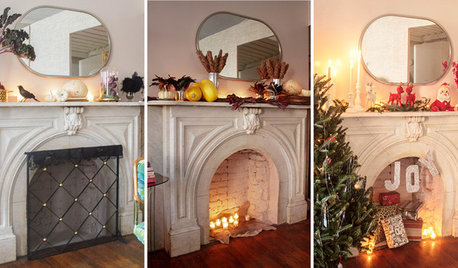
HOLIDAYS1 Mantel Done 3 Ways for the Holidays
See how this New York stylist dresses up her mantel with fresh touches for Halloween, Thanksgiving and Christmas
Full Story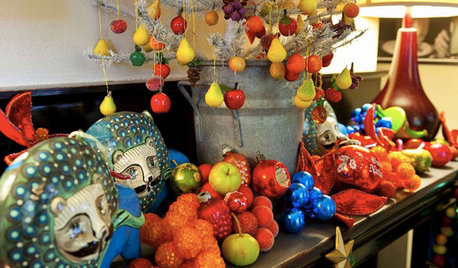
HOLIDAYS25 Gorgeous Holiday Mantels by Houzzers
Laden with boughs, lights and even lemons, these decorated fireplace mantels show a festive Christmas spirit and a creative approach
Full Story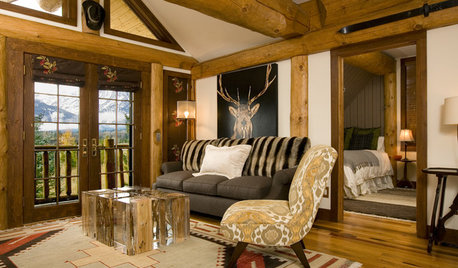
HOLIDAYSOh Deer! Antler-Inspired Décor for the Holidays and More
Enjoy the grace and beauty of deer at home — no taxidermy needed
Full Story
HOLIDAYSShow Us Your Holiday Mantel
Wreaths and garlands, sparkling lights and Santas, stockings and mini trees. If you’re displaying it, we want to see it!
Full Story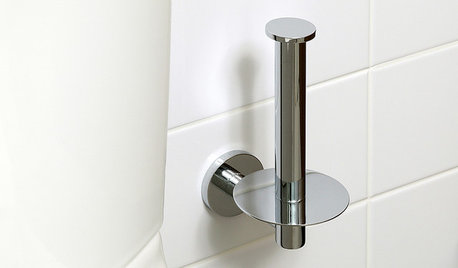
FUN HOUZZ14 Things You Need to Start Doing Now for Your Spouse’s Sake
You have no idea how annoying your habits at home can be. We’re here to tell you
Full Story
MOST POPULAR5 Ways to Pare Down Your Stuff — Before It Gets in the Door
Want to free up some room around the house? Rethink gift giving, give yourself a shopping mantra and just say, ‘No, thank you’ to freebies
Full Story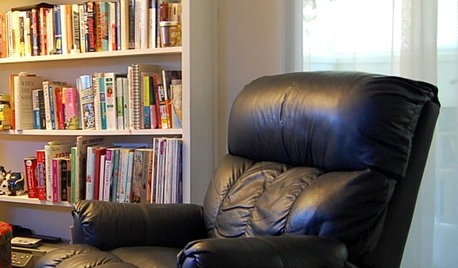
FUN HOUZZ10 Things People Really Don’t Want in Their Homes
No love lost over fluorescent lights? No shocker there. But some of these other hated items may surprise you
Full Story
DECORATING GUIDES10 Ways to Update a Victorian Living Room
Bring your period living room sensitively into the 21st century with these simple yet effective design tricks
Full Story
HOUZZ TOURSHouzz Tour: Farm Fresh
Updates bring back the bygone charm of a 19th-century Texas farmhouse, while making it work for a family of 6
Full Story


yoyobon_gw